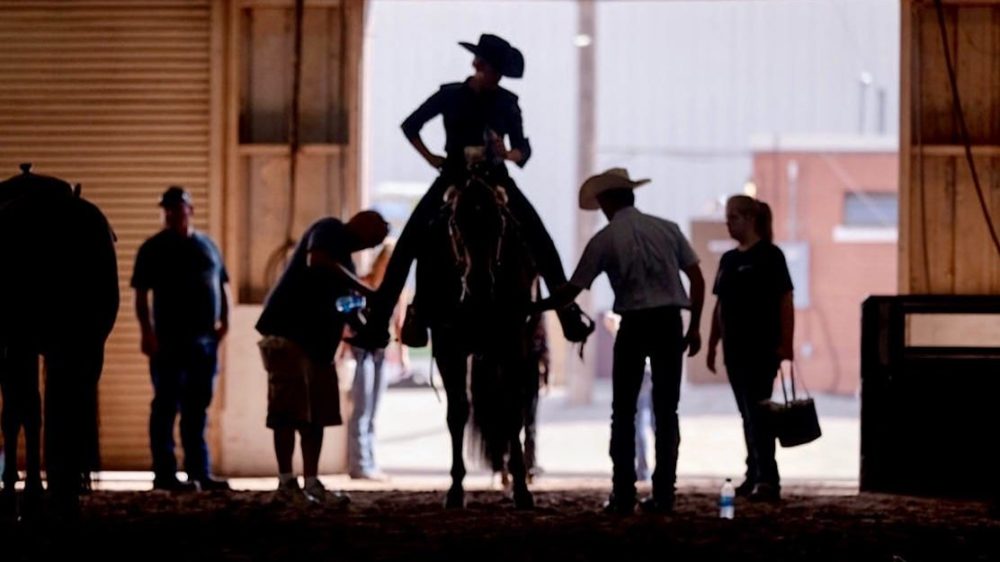The new year has already brought new controversy related to whether amateurs should be allowed to accept payment for lessons or whether such tasks should be “left to the professionals.”
In this article, we break down the details on the intention behind the AQHA and APHA proposals, their perceived benefits, why they have caused so much backlash from amateurs and professionals alike, and where the processes go from here.
The Proposals
The best way to have an open dialog about any topic, is to begin by understanding what we are talking about. The AQHA Proposal at issue is written as follows:
“Amend SHW 225.3.2 to allow youth and/or amateur members to instruct another person in riding for renumeration, monetary or otherwise, either directly or indirectly, for riding lessons.” SHW rules 225.3.1 and 225.3.3 are to remain as-is.
The rule proposal, as-is, does not have any limiting requirements at this time. It purely relates to providing riding lessons from the ground and does not allow amateurs to train animals or ride animals on behalf of an owner.
The APHA AM–10-3 proposal deletes the language from AM-010–2.a that prohibits amateurs from accepting renumeration for providing lessons. The provision adds that amateurs can now:
“[P]rovide instruction to another person on “how to ride, how to drive, and/or how to exhibit a horse in-hand for renumeration, either directly or indirectly, so long as this instruction occurs at any location other than a horse show or public clinic.” (See AM-010–2.c)
However, this proposal continues to prohibit amateurs from accepting renumeration for “showing, riding, judging, training, or assisting in training a horse.” (See AM-010–2.e).
The Intent
The purpose behind the rule primarily relates to entry-level accessibility and knowledge sharing.
The thought is that amateurs should be able to assist in clinics for basic horsemanship skills (how to groom, tack up, horse care, and basic riding). The goal, then, is to bring more participants into the horse industry and eliminate the guilt/fear many amateurs feel offering new riders assistance.
APHA’s proposal actually explains the intention, claiming “the intent of the rule change is to give an affordable option for youth/beginners to show APHA.” APHA warns, if the provision does not pass, the association will continue to see a decline in membership.
The Support
Many of the supporters of the proposals feel that the current system is set up to “catch” amateurs who provide help to novices. Specifically, many amateurs have voiced that they are afraid to provide any assistance to new riders out of fear it will be assumed they are being compensated. Therefore, they refuse to even volunteer to assist to avoid the appearance of impropriety.
If the rules are adopted, the thought is that more amateurs would become involved in helping other amateurs, even on a volunteer basis.
Many breed associations have seen declines in active membership over recent years. Complaints explaining the decline tend to be that the associations are “exclusive” and “not helpful” and that the cost of top trainers makes it difficult for anyone to ease into the sport.
If amateurs are allowed to provide basic assistance, it could alter the negative perceptions and allow for more inclusivity at entry levels (from 4-H, to clinics, to basic lesson programs, to open shows).
The Precedent
The proposals’ supporters argue that such rules are not without precedent. In fact, the National Collegiate Athletic Association (NCAA) allows student-athletes to provide instruction for compensation, so long as they do not use university facilities, the lessons are private and not “game day” instructions, and the student-athlete doesn’t use their image to advertise. (See NCAA Div. I Rule 12.4.2.1, est. 1996.)
The United States Equestrian Federation (USEF) has already passed a similar rule, but with limitations. (See GR 1306 and subparts.) According to the USEF, amateur riders may provide lessons for compensation, so long as they declare with the association that they are providing lessons and the amount of time spent providing lessons is limited.
The Opposition
Opponents to the rules have been particularly outspoken on social media with most comments ranging from disbelief to anger to a hard and resounding “No.”
Specifically, many of the detractors argue that this new change will blur the line between professionals and amateurs such that there will no longer be a distinction between the divisions.
Indeed, the very definition of “amateur” according to Oxford is “a person who engages in a pursuit, especially a sport, on an unpaid rather than a professional basis.” (Emphasis added.)
Many fear that approval of the proposals will lead to amateurs taking advantage of paid opportunities. As with any rules, there will always be those looking to exploit opportunities and detractors believe the exploitation of these rules could have disastrous consequences for the amateur divisions as a whole.
The issue of where the association draws the line is a struggle for many commentators, worrying this is a slippery slope that will be difficult to regulate and will damage the purpose for the amateur division, while devaluing actual professionals. Oversight would be more difficult with this new “grey area” the rules create as opposed to the former hard-line rule prohibiting renumeration for training and coaching activities.
Many fear that the long-term consequences of approving the rule are not worth the benefits. They are concerned that the amateur division will find many true amateurs dropping out of competition because they are not equipped to show against “trainers.”
Many trainers feel it will only increase competition because they do make a living off of offering lessons. If approved, they will have to compete with amateurs who can charge fees on an “extra income” basis that will cut into their ability to make a living.
The Process
Currently, the AQHA proposal will be heard by the Amateur Committee at the AQHA Convention on Saturday February 26 and Sunday, the 27th. If the rule makes it out of Committee, it goes before the general membership that is present at the Convention on Monday for their opportunity to weigh in. If the proposal gets through the Convention, it would go to the Show Council and then the AQHA Executive Committee for final commentary and approval.
The APHA proposal has been forwarded to the appropriate APHA advisory committees for consideration at the 2022 APHA Convention (which is currently taking place). Rule change proposals that are passed out of their committees will then be voted on by elected state directors during the APHA Convention.
Where We Go From Here
It is important to remember that the propositions in both associations are only proposals. As such, the AQHA proposal has not even been evaluated by the Amateur Committee yet.
Therefore, membership has an opportunity to make their voices heard by both associations, either in favor or against the proposals. Additionally, membership can propose limitations on the rules or amendments to the language.
According to AQHA Amateur Committee Member Russell Mueller, “The Amateur Committee is here to hear the concerns of membership and discuss those concerns to better our Association. If you can’t come to the Convention to participate in our meeting or participate in the process (if the proposal makes it out of committee), then call us, email us, and make your voice heard.”
While social media threads are a quick way to receive information and discuss concerns, they are often rife with misinformation, improper assumptions, and hyperbole. If you want to make a difference regarding either proposal, the most direct and impactful way to do so is by contacting a committee member in advance of voting on the proposals.








